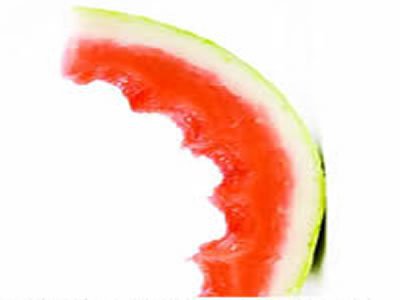Watermelon rind does your prostate lots of good —Study
Men entering midlife frequently experience an enlarged prostate, which can hamper the flow of urine from the bladder and lead to such problems as frequent urination, urine leakage and urinary tract infections.
There’s no definitive evidence that good nutrition can prevent prostate problems, but experts have found that eating a healthy balanced diet, including vegetables and fruits like watermelon may help ensure a healthy prostate.
Despite popular belief that watermelon is made up of only water and sugar, watermelon is actually considered a nutrient dense food, a food that provides a high amount of vitamins, minerals and antioxidants for a low amount of calories.
Many studies have suggested that increasing consumption of plant foods like watermelon decreases the risk of obesity and overall mortality, diabetes, heart disease and promotes a healthy complexion and hair, increased energy, overall lower weight.
Although, the most common way watermelon is eaten, is the consumption of the pink or yellow flesh, eaten raw, the way it was grown, scientists found that every aspect of the watermelon, including its rind and seeds have nutritional and health benefits.
Researchers at the University of Ibadan examined the rind and juice extracts of watermelon and found them to help reduce an enlarged prostate and ameliorate some of the effect of the enlargement on the organ.
According to the researchers, the ameliorative effect of the rind and juice of watermelon in animals under laboratory conditions suggests that they could be probable treatment both for the prevention and management of prostate enlargement.
Dr Oluwafisayo Olorunisola, a researcher at the department of anatomy, University of Ibadan, during a poster presentation at the 5th Unibadan Conference of Biomedical Research, stated that findings of the study suggested that watermelon may be of medicinal relevance in the prevention of beign enlarged prostate(BPH).
Previously, experts have said that not only does watermelon rind contain plenty of health-promoting and blood-building chlorophyll, but the rind actually contains more of the amino acid, citrulline than the pink flesh.
Citrulline is converted to arginine in the kidneys, and not only is this amino acid important for heart health and maintaining ther immune system, but it has been researched to have potential therapeutic value in over 100 health conditions.
Much research also suggested that eating foods rich in lycopene —is associated with a reduced risk of prostate cancer, making watermelon’s high lycopene levels — about 15 to 20 milligrams per 2-cup serving, also beneficial for prostate health.
Lycopene is a phytonutrient, which is a naturally occurring compound in fruits and vegetables that reacts with the human body to trigger healthy reactions. It is also the red pigment that gives watermelons, tomatoes, red grapefruits and guavas their colour. It’s also a powerful antioxidant thought to have anti-inflammatory properties.
In a 2009 report on the relationship between diet and prostate cancer risk, the researchers reported that “there is accumulating evidence to support the consumption of lycopene … as protective factors against prostate cancer.”

In addition, an earlier study found “evidence that increased consumption of tomato products and other lycopene-containing foods might reduce the occurrence or progression of prostate cancer.
Here are natural remedies for men to treat an enlarged prostate:
Sesame seeds. Sesame seeds are rich in zinc, a mineral that is essential to the health of the prostate. Men with either BPH or prostate cancer have lower levels of zinc in their bodies, sometimes up to 75 per cent lower than those with healthy prostates.
Soy foods. Soy-based foods contain phytoestrogens, which are thought to help reduce testosterone production, which is believed to aggravate prostate cancer growth.
Many studies suggested that soybean isoflavones reduce symptoms associated with prostate enlargement. For instance, a more recent one suggests that soy only decreases cancerous cell growth in prostates.
Avocados. Avocados are rich in beta-sitosterol, a plant sterol thought to reduce symptoms associated with BPH. Some men taking beta-sitosterol supplements say they have better urinary flow and less residual urine volume.
Cornsilk tea. For more than a century, cornsilk has been a remedy for urinary conditions such as inflamed bladders and painful urination. It was also used to treat the prostate. Some of those uses have continued into modern times; cornsilk is a contemporary remedy for all conditions of the urinary passage.
Pumpkin seeds. It contains protective compounds called phytosterols, which may be responsible for shrinking the prostate. They also contain chemicals that may be beneficial for prostate health.
Vegetables. Eating more vegetables, especially green leafy vegetables can help lower risk of BPH because they are rich in antioxidants. People who eat onion and garlic regularly may also benefit from a lower risk of BPH.
